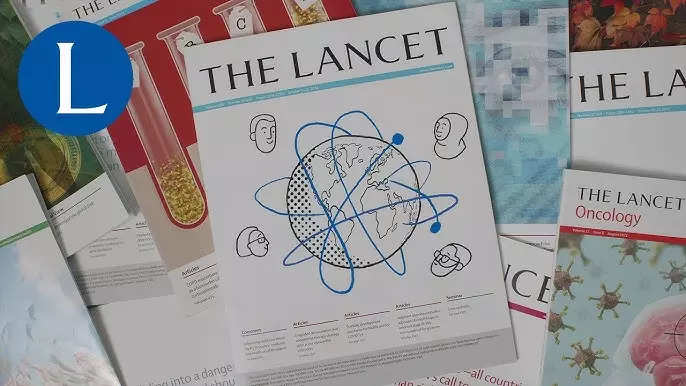
New Delhi: The Lancet Citizens’ Commission on Reimagining India’s Health System has run into controversy even before its report has been published with one of its members, former union health secretary Sujatha Rao, tweeting her withdrawal from the commission earlier this week. She stated that the commission was proposing the corporatization of primary care in India and called that a “recipe for disaster”. Her withdrawal drew attention to the fact that several experts who were listed as members of the commission initially are not part of it anymore.
According to the commission’s website, with the Covid pandemic bringing into focus the need for universal health coverage (UHC) in India, a Lancet Citizens’ Commission was constituted in 2020 to lay out the path to achieving UHC in India in the coming decade. “Underpinning the Commission’s work is a normative commitment to strengthening India’s public health system in all its dimensions including promotive, preventive, and curative care. The state must take a leadership role as provider, financier, regulator, and steward of the health system,” stated a paper on the commission’s work published in the Lancet in April 2021.
Key questions include negotiating the intersections and complementarities between public and private health provision and the design of a regulatory structure that holds each component of the health system accountable, stated the paper. Funders of the commission include the Azim Premji Foundation, Rohini Nilekani Philanthropies, Vikram Kirloskar, and The Lakshmi Mittal and Family South Asia Institute, Harvard University.
Dr Yogesh Jain, a well-known public health physician who has worked extensively on developing a blueprint for UHC in India was among the first to withdraw from the commission. “I was not comfortable with the head of a pharma company being one of the four co-chairs of the commission. There is such an obvious conflict of interest that a person who has openly pushed for privatization will be weighing in on designing a public health system,” said Dr Jain.
Dr Srinath Reddy, former president of the Public Health Foundation of India (PHFI) and chairperson of the High-Level Expert Group (HLEG) on Universal Health Coverage of 2010 was also listed as a member. Dr Reddy confirmed that he was not a member of the commission and did not contribute to its report. He did not provide reasons and said that he would comment on the report when it is published.
Sujatha Rao’s tweet stated that the commission was “proposing the corporatization of primary care and replicating the US model, the only country that despite spending 18% GDP on health has no UHC. In an already unequal society, it’s a recipe for disaster”.
Dr Rakhal Gaitonde, professor of public health at the Achutha Menon Centre for Health Science Studies of the Sree Chitra Tirunal Institute for Medical Sciences and Technology, whose work includes research on health inequity and health policy and systems research, continues to be a member of the commission but has withdrawn from the authorship team of its report. However, he did not want to comment till the report was published.
Many of the members that TOI wrote to did not respond, while some responded that since the commission’s report was under review they were not authorized to speak to the media. Interestingly, three of the commission’s members are directly connected to Narayana Health, a for-profit healthcare company that recently launched a subsidiary company for managed care, which includes preventive and primary care.
Dr Devi Shetty, founder and chairperson of Narayana Health and Nachiket Mor, an independent director of the company, are among the 20 commissioners. Kiran Mazumdar Shaw, Chairperson and MD of Biocon Ltd is a non-executive director in Narayana Health and is one of the co-chairs of the commission. Tarun Khanna of Harvard Business School and director of the Lakshmi Mittal and Family South Asia Institute in Harvard University, another co-chair of the commission, was the one who wrote the case study on Dr Shetty and Narayana Hrudayalaya in 2005 for Harvard Business School’s case collection.
Some of the experts felt it was better to stay in the commission and engage with the process despite misgivings than to withdraw. According to some of the members, there will be disclaimers by some of the authors regarding some of the recommendations or sections of the report. The report of the commission, which has gone for peer review, is expected to be published before the end of the year.
Lancet Commission members
Co-Chairs
1.Vikram Patel is a founder of Librum, a mental health consulting firm, and co-founder of Sangath, India.
2.Kiram Mazumdar-Shaw is the Chairperson and Managing Director of the biopharmaceutical company Biocon.
3.Tarun Khanna is a co-founder of Jana Care, a chronic disease diagnostics company but does not have any operating role or board stewardship role in the company.
4.Gagandeep Kang serves on the Boards of the Coalition for Epidemic Preparedness Innovations and Hilleman Laboratories Pvt Ltd. PD declares no competing interests.
Commissioners of the Lancet Citizens’ Commission are:
1.Devi Shetty (Chairman, Narayana Hrudayalaya Limited)
2.Nachiket Mor (visiting scientist, The Banyan Academy of Leadership in Mental Health)
3.Mirai Chatterjee (Director, Social Security Team, Self-Employed Women’s Association [SEWA])
4.Poonam Muttreja- Executive Director, Population Foundation of India
5.Sharad Sharma (Co-founder, iSPIRT Foundation)
6. Yamini Aiyar- former president of Centre for Policy Research
7.Bhushan Patwardhan (Distinguished Professor, Interdisciplinary School of Health Sciences, Savitribai Phule Pune University; Vice Chairman, University Grants Commission
8.Arnab Mukherji- Professor of Public Policy, Center for Public Policy, IIM Bangalore
9.Thelma Narayan- Director, Academics & Policy Action, SOCHARA
10. Sapna Desai- Associate, Population Council
11.Leila E Caleb Varkey-Independent Public Health researcher
12.Vijay Chandru- Professor, Interdisciplinary Research, Indian Institute of Science
13.Atul Gupta- Assistant Professor, Department of Health Care Management, Wharton School, University of Pennsylvania.
.14.Sandhya Venkateswaran-Senior Fellow, Centre for Social and Economic Progress
15. Sandra Albert -Director, Indian Institute of Public Health Shillong and Professor of Public Health
16. Preeti John- Associate Professor and Deputy Director, UCL Global Business School for Health; Faculty of Population Health Sciences, UCL, London, UK
17. Rakhal Gaitonde- Professor of Public Health, Achutha Menon Centre for Health Science Studies, Sree Chitra Tirunal Insititute of Medical Sciences and Technology
18. Indu Bhushan-Chairperson, Partnership for Impact (P4i) and former CEO of National Health Authority




